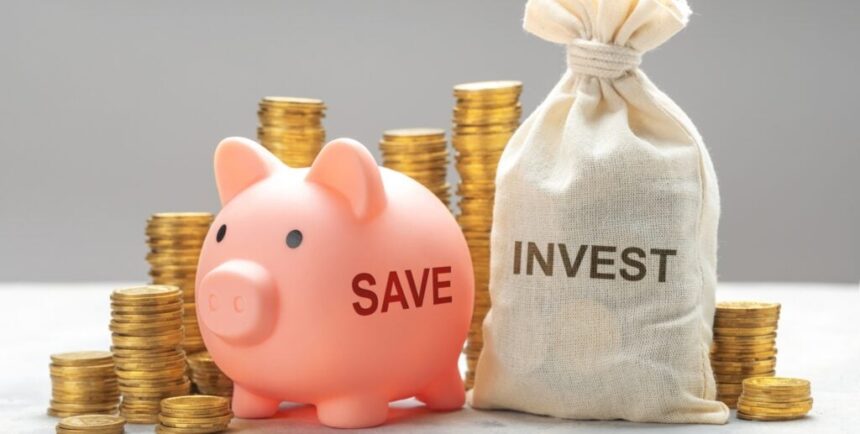Setting up an emergency fund is one of the fundamental pillars of financial well-being. And yes, saving can be hard, especially in 2024. According to a recent poll by Bankrate, many of us are saving less, with the majority (63%) saying that recent high inflation means they’re able to save less than before. As of 2024, only 44% of Americans could pay for an emergency expense of $1,000 or more from their savings. The majority would rely on credit cards, payment plans, or cutting spending elsewhere.
However, not everyone’s situation is quite as dire. About a third of us (30%) report having more savings this year than last year. And millennials are not doing so badly, with 35% of this generational group saying that they have more savings than they did a year ago. So, some of us are on the right track.
But how much is enough? Realistically, how much do you need to have in an emergency fund this year in order to be able to weather an unexpected life storm without relying on credit card debt?
The other question often asked about emergency funds is: When is it not a stupid idea to invest yours? If you already have a decent amount saved, doesn’t it make better financial sense to invest it and get a higher return over time than you will with a standard high-yield savings account?
How Much Do You Need in an Emergency Fund in 2024?
The traditional wisdom you’ll read in most advice columns and banking blogs is three to six months’ worth of your living expenses. The reality is that most people probably need somewhere closer to nine months’ worth of expenses to cover an emergency.
Why so much? Sean Fox, president of debt resolution at Achieve, a digital personal finance company in San Mateo, California, tells BiggerPockets that this estimate is based on the fundamental facts of our lives today: “‘During the pandemic, we saw firsthand how quickly someone can lose a job and all income. Getting back on one’s feet, even after securing a new position, takes time.”
That’s to say nothing of medical emergencies. These really can “cause financial disaster,” Fox says. That’s the thing with emergencies: They’re freak events that can plunge someone into financial hardship literally overnight.
And if you have other obligations, such as being a real estate investor, you’ll need to save even more—both for your personal emergencies, and separately for maintenance and emergencies at your investment properties.
How to Start Saving for an Emergency Fund
The nine-month figure is daunting even for stable, dual-income households. However, the fact is that everyone should save for an emergency fund, no matter their income level or situation. Fox’s advice is to start by putting aside “the amount that would send you reaching for the credit card. A doctor’s bill for $500? An appliance repair bill of $200? Begin there and build.”
Fox adds that doing that will benefit you by applying an “out-of-sight, out-of-mind” mentality to that money, removing the temptation to spend it. This is worth doing even if you carry credit card debt.
The traditional approach is to pay off all your credit card debt first before you start saving. This may only be realistic for some people, though. If you are not saving at all, you will just have to tap further into debt in case of an emergency. You may be better off making the minimum credit card repayments until you build up a sizeable emergency fund.
Emily Gallagher, an assistant professor of finance at the University of Colorado Boulder, told CNBC: ‘‘Right now, cash is king. We don’t know how long you’ll need that extra money that you’re using to pay your debt.”
The best strategy is to drastically reduce your credit card spending and to save that money instead.
When Is It a Good Idea to Invest Your Emergency Fund?
“Almost never” is the realistic answer. Investing is a long-term game. We’re talking over a decade. A high-yield savings account rather than an investment account is still the way to go for most people.
“The idea is that the funds must be easily accessible (within one or two business days), but not so accessible that you’ll be tempted to spend it when it isn’t an emergency,’’ Fox tells us.
There is only one category of people who might just get away with investing their cash reserves instead of saving them: people whose monthly expenses are significantly lower than their earnings. And even then, financial planner R.J. Weiss tells Business Insider that the best strategy is to invest in a taxable investment account like a brokerage account. You’ll have to pay taxes on your money if you do withdraw, but at least the funds will be easily accessible should you need them.
Protect your wealth legacy with an ironclad generational wealth plan
Taxes, insurance, interest, fees, bills…how can you acquire wealth, let alone pass it down, when there are major pitfalls at every turn? In Money for Tomorrow, Whitney will help you build an ironclad wealth plan so you can safeguard your hard-earned wealth and pass it on for generations to come.
Note By BiggerPockets: These are opinions written by the author and do not necessarily represent the opinions of BiggerPockets.









